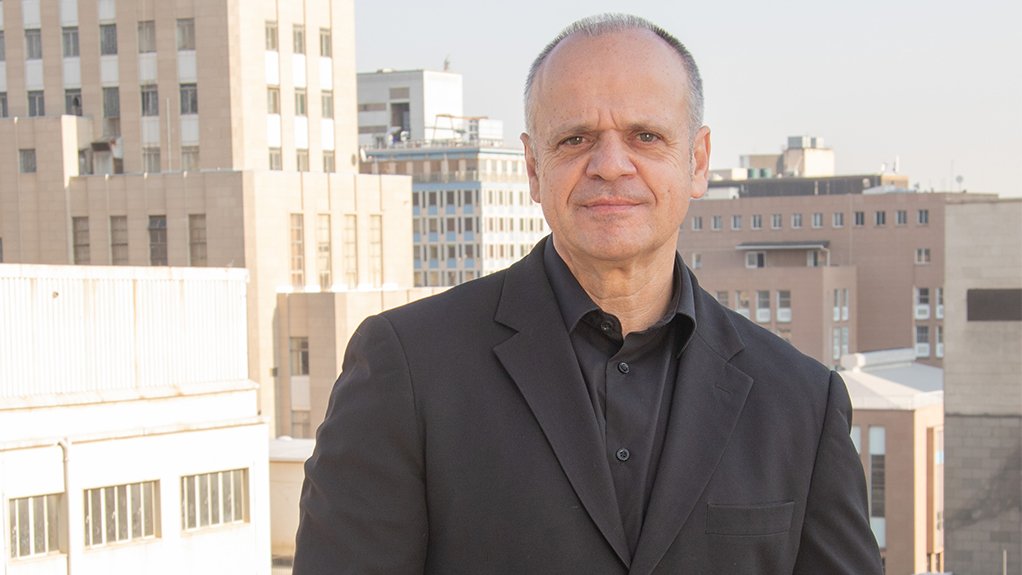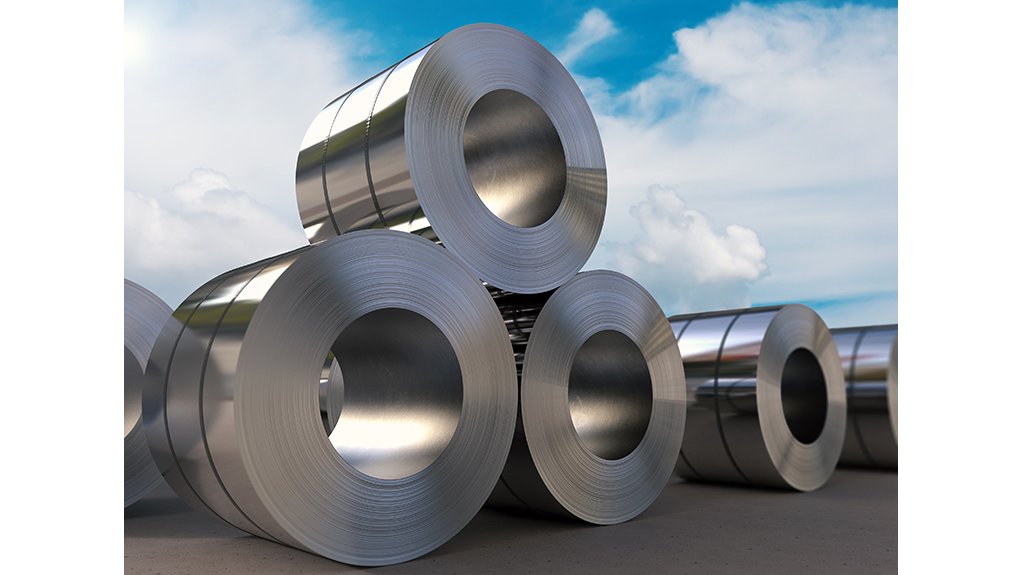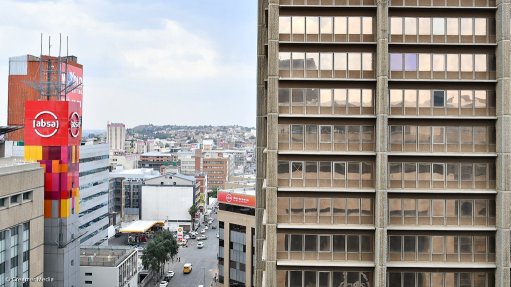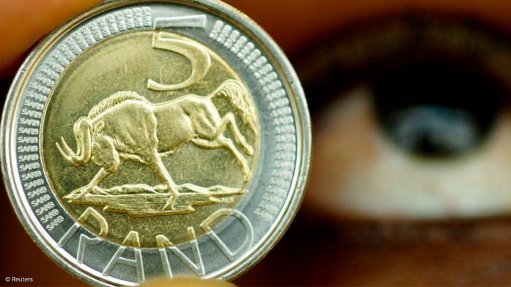Seifsa celebrates eightieth anniversary



LUCIO TRENTINI In light of its anniversary, Seifsa aims to continue offering its members – and potential new members – products, services and training across traditional industrial relations, economics, human capital, safety, health, environmental and quality platforms
BIRTHDAY CELEBRATIONS After 80 years of representing and promoting the interests of the South African metals and engineering industry, Seifsa attributes its success to strong leadership through the direct involvement of individual member companies in the affairs of their respective associations
Photo by ©phonlamaiphoto - stock.adobe.com
The Steel and Engineering Industries Federation of Southern Africa (Seifsa) – after 80 years of representing and promoting the interests of the South African metals and engineering industry – attributes its success to strong leadership through the direct involvement of individual member companies in the affairs of their respective associations.
“Seifsa, over the years, has been blessed to have leaders with integrity and a strong moral compass to uphold the stature and sovereignty of the federation and all those it interacts with,” enthuses Seifsa CEO Lucio Trentini.
One of Seifsa’s memorable achievements is its being a founding member of the Metal and Engineering Industries Bargaining Council in mid-1940s.
Trentini says the council is the preeminent platform for dialogue between organised labour and business that led to the relative normalisation of industrial relations, labour peace and stability across the sector, as well as a set of terms and conditions of employment that can favourably match most sectors.
Institutionalising collective bargaining, mainly overseen by Seifsa in the mid-1950s, is another highlight that led to the establishment of industry-wide social security and benefit- fund agreements such as the Pension and Provident Fund Agreement.
Seifsa also advocated on behalf of its members at the Truth and Reconciliation Committee hearings during the 1990s.
Trentini enthuses that the metals and engineering sector became one of the first organised industrial sectors to readily acknowledge the Apartheid wage gap, thereby pioneering long-term agreements, wage modelling focused on closing the wage gap, and no-strike clauses during the currency of a binding agreement.
Moving forward to 2020, Seifsa and industry trade unions concluded an agreement that resulted in a freezing of the terms and conditions of employment, including no wage increases.
“This was quite a feat for an industry as large as the metals and engineering industry – one that remains unmatched. It was testament to the hard work invested over many years in building collaborative and professional relationships with organised labour.”
On April 18, 2023, Seifsa had its first ever meeting with a serving Head of State – President Cyril Ramaphosa – as a call to collaborate with government in areas that can rekindle growth in the sector by stimulating demand, as well as encouraging economic and employment growth.
“A number of initiatives are under way and we remain committed to staying the course,” Trentini expresses.
Highlights and Lowlights
The South African steel industry has progressed throughout Seifsa’s existence, with Seifsa COO Tafadzwa Chibanguza describing the South African economy as one of the most industrialised economies in Africa, as the country enjoys an industrial base that he describes as “unparalleled” on the continent.
“This is a major highlight which has manifested over many decades. Much of it can be attributed to the contribution of the steel and engineering sector, which has been critical in building this industrial capacity. Steel is a critical input in almost all infrastructure and industrial processes.”
South Africa enjoys the lion’s share of steel production capacity in Africa, accounting for about 31% of the continent’s steel production capacity, which translates to about 93% of the production capacity in sub-Saharan Africa.
He adds that the period from 2000 to 2008 was characterised by a supportive global and domestic economic environment, coupled with considerable investment by the State into the economy.
This resulted in production in the sector growing at a compound annual rate of 3%, with the sectors’ gross domestic product expanding at a 4.6% compound annual growth rate (CAGR), creating about 100 000 nett new jobs.
However, Chibanguza notes that production in the sector has not fully recovered from the impact of the global financial crisis in 2008/09 and has operated at 15% below the 2008 peak while contracting at a rate of 1.2% CAGR to date.
“This is attributable to low levels of economic growth, which has averaged 1.3% over this period, and anaemic gross fixed capital formation of 0.8% over the same period,” he says, lamenting that the electricity crisis has exacerbated these negative trends.
Moving Forward
In light of its anniversary, Seifsa aims to continue offering its members – and potential new members – products, services and training across traditional industrial relations, economics, human capital, safety, health, environmental and quality platforms.
“Given a fast-changing global environment, the trend is to have more matters dealt with at plant level and fewer at industry level. Seifsa is ideally positioned to offer professional business assistance to members in services covering the full business spectrum,” says Trentini.
Hence, a focused strategy is necessary to unify the views and concerns of associations, with Trentini arguing that Seifsa is well placed to debate issues on behalf of the industry.
“Seifsa is uniquely positioned to harness the considerable talents within the broader federation structure. We commit to an even stronger Seifsa going forward and present a sound action plan, response and solution to whatever engagement or forum the federation considers necessary,” he concludes.
Article Enquiry
Email Article
Save Article
Feedback
To advertise email advertising@creamermedia.co.za or click here
Press Office
Announcements
What's On
Subscribe to improve your user experience...
Option 1 (equivalent of R125 a month):
Receive a weekly copy of Creamer Media's Engineering News & Mining Weekly magazine
(print copy for those in South Africa and e-magazine for those outside of South Africa)
Receive daily email newsletters
Access to full search results
Access archive of magazine back copies
Access to Projects in Progress
Access to ONE Research Report of your choice in PDF format
Option 2 (equivalent of R375 a month):
All benefits from Option 1
PLUS
Access to Creamer Media's Research Channel Africa for ALL Research Reports, in PDF format, on various industrial and mining sectors
including Electricity; Water; Energy Transition; Hydrogen; Roads, Rail and Ports; Coal; Gold; Platinum; Battery Metals; etc.
Already a subscriber?
Forgotten your password?
Receive weekly copy of Creamer Media's Engineering News & Mining Weekly magazine (print copy for those in South Africa and e-magazine for those outside of South Africa)
➕
Recieve daily email newsletters
➕
Access to full search results
➕
Access archive of magazine back copies
➕
Access to Projects in Progress
➕
Access to ONE Research Report of your choice in PDF format
RESEARCH CHANNEL AFRICA
R4500 (equivalent of R375 a month)
SUBSCRIBEAll benefits from Option 1
➕
Access to Creamer Media's Research Channel Africa for ALL Research Reports on various industrial and mining sectors, in PDF format, including on:
Electricity
➕
Water
➕
Energy Transition
➕
Hydrogen
➕
Roads, Rail and Ports
➕
Coal
➕
Gold
➕
Platinum
➕
Battery Metals
➕
etc.
Receive all benefits from Option 1 or Option 2 delivered to numerous people at your company
➕
Multiple User names and Passwords for simultaneous log-ins
➕
Intranet integration access to all in your organisation




















